A gripping, heartwarming tale of recovery and the beautiful bond between man and dog, “The Year of the Dog” is a triumph of indie filmmaking.
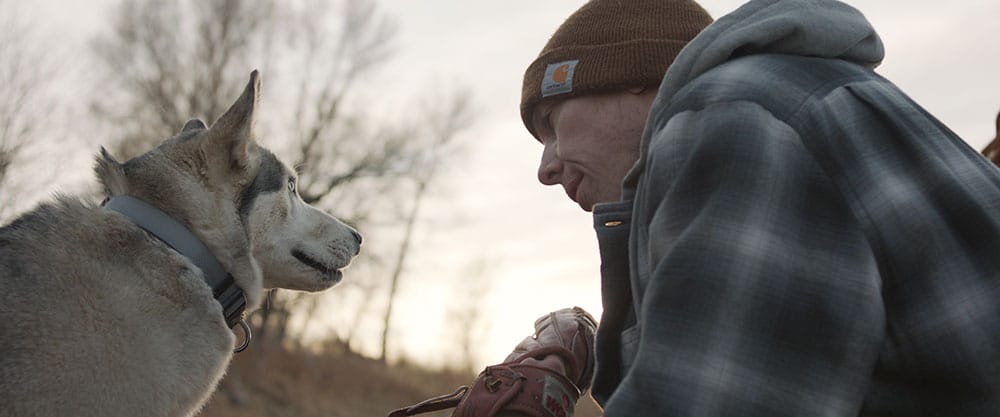
The Year of the Dog is not the kind of film I’d typically seek out.
I’m a horror fan, drawn to the dark subject matter. A feel-good story about a recovering alcoholic and the unexpected healing relationship he forms with a sled dog sounds sweet but far removed from the types of films in my cinematic wheelhouse.
Still, as much as I love monsters, I’m not a monster myself. So, naturally, I love dogs.
I’ve seen enough horror movies to know that the scariest monsters are human. As a species, man has done little to deserve the unconditional love and unyielding devotion dogs (and other companion animals) give us. It’s a gift we’re not worthy of but one that we should all be eternally grateful for.
As a dog lover, I know I’m not alone in the horror community. There seems to be a pretty significant intersection between passion for the dark and twisted and unbridled enthusiasm for man’s best friend. Maybe it’s because we’re exposed to so much horror — on screen and off — that we naturally gravitate to one of life’s most pure and untainted joys.
In fact, few things seem to make a horror fan angrier than when a filmmaker dares to kill the dog in a horror film. It’s the reason we have an important public service site that is doesthedogdie.com.
It’s also, ironically, the reason so many dogs and other animals do die in these films.
You can slaughter human victims all day long in the most visceral and unspeakably horrific of ways, and we barely bat an eye. Kill an innocent dog, and we lose our minds. Nothing packs as much of an emotional gut-punch as that, and it’s a surefire way to make sure we truly feel the horror in a deep and meaningful way.
The Year of the Dog is not a horror film, and, welcome-spoiler alert, the dog does not die.

So why am I telling you all this?
Because I think this is a film worthy of your time and attention even if you are, like me, someone who may not immediately fit into the film’s target demographic.
It’s not a horror film. But it does recognize that life can be a real horror show. And we’re all looking for a slice of salvation in the bowels of hell.
The story follows a man, Matt (writer/director Rob Grabow), at the end of his rope, afraid and alone, desperate to find one good reason to keep trying in the face of so much agony.
Matt is an alcoholic struggling against all odds to stay sober. He has very little willpower, but he does finally have a reason. His estranged mom, who he hasn’t seen in fifteen years, is dying, and he needs to get 30 days of sobriety under his belt so he can see her one last time and say goodbye.
Knowing he’ll never make it on his own, his sponsor Fred (Michael Spears – Dances with Wolves, Reservation Dogs) offers to let Matt stay at his remote Montana cabin. Matt is reluctant to give up his freedom but soon realizes he’ll surely fail if he doesn’t accept some help.
Despite agreeing to stay with his sponsor during his recovery, he’s reluctant to commit to the process and struggles to overcome his self-described “insane, compulsive desire to self-bleed.”
But then Matt meets another lost soul, a striking stray Husky with a gentle heart.
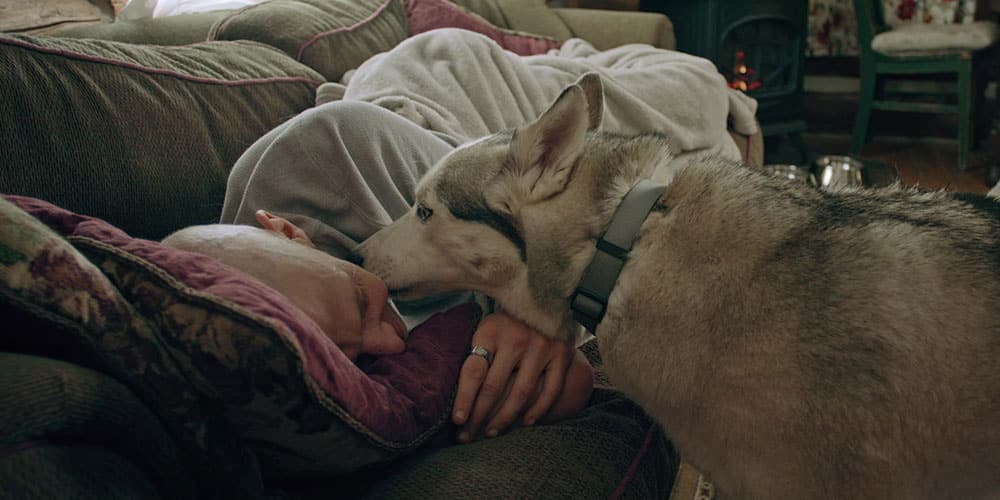
He immediately falls for the dog, who he names Yup’ik (pronounced ‘You Pick’), after catching the Husky breaking into a chicken coop just to cuddle with the chickens so he won’t feel so alone.
He convinces Greg to let him keep the dog and begins to form a close bond with the animal.
He meets a compassionate former dog musher named Julie (Alyssa Groenig), who tells Matt that Alaskan Huskies love to pull. She encourages him to harness him up and start training him. It’s not long before he realizes that his small, scrappy dog has a pretty sizeable talent, able to easily pull mass well beyond his weight class.
With the encouragement of Julie and dog expert (and Al-Anon member) Greg (Jon Proudstar, Reservation Dogs), Matt learns to form a deeper connection with his dog in pursuit of his goal of getting Yup’ik to qualify for State in dog pulling.
“He’s a sensitive dog,” Greg explains, “and you will have to become sensitive, too.”
Matt replaces his obsession with self-destruction with a much healthier obsession to get his new best friend to pull an unbelievable 2500 pounds a few feet in 30 seconds, despite weighing less than 50 pounds.
Obviously, it’s not really about pulling the weight; it’s a potent metaphor for getting Matt to pull through his addiction and find his way to the other side of despair and hopelessness.

Yup’ik is a powerful dog who can somehow out-pull dogs four and five times his size. But his biggest pull is on Matt’s heart, dragging him across the line between shattering loneliness and a healing bond of love and trust.
The Year of the Dog has a lot going for it, including a moving score, stunning cinematography, and breathtaking views of the mountainous, snow-covered landscapes in Montana.
We’re also treated to a sensitive and empathetic performance from Grabow (who wrote the film and directed alongside Andrew McGinn and Michael Peterson, all making their feature film debut). Indigenous actors Spears and Proudstar are extraordinary, and the film treats their characters with depth and gravitas, refusing to reduce them to stereotypes.
Of course, the real star of the film is undoubtedly the gorgeous Husky, a real-life abandoned rescue dog named Caleb. I absolutely defy you not to fall in love with him.
Grabow put everything he had into making this deeply personal film. He spent years working in Alaska, where he met a dogsled musher suffering from alcoholism and addiction. He credited his hard-fought sobriety in large part to his own Alaskan Husky — a powerful story of love and redemption that inspired The Year of the Dog.
Grabow said he hopes his movie, intended to honor recovering addicts, “inspires people to continue to open themselves up emotionally and to connect with those they love.”
It’s a love letter to people who feel isolated and unseen, giving them hope and reminding them that there are people who care.

In The Year of the Dog, Matt is a man who feels constantly alone. But he suddenly finds himself part of a community, a makeshift family who believes in him and supports him in spite of his own worst self-destructive tendencies and his instincts to push people away so he can’t hurt them and they can’t hurt him.
A good chunk of the film is simply us watching Matt bond with his pup — and sometimes his human companions — during lots of heartwarming montages set to folksy music. It’s so simple and, yet, so affecting.
If you’re like me, you’ll find yourself waiting for the conflict, the big bad that comes in and devastates just when it seems happiness is attainable.
But this isn’t that kind of film.
That’s not to say there’s no emotional pull. It can be difficult to watch Matt battle with his persistent inner demons, and no doubt, the road to recovery is far from easy. The pain and suffering is palpable. But so is the beauty and tenderness, the power of friendship, and the way Matt slowly and methodically learns to trust when trust feels impossible.
Like most addiction films, there are a couple of gut-wrenching setbacks that threaten to derail Matt’s recovery, at least momentarily. Ultimately, however, it’s a pretty low-stakes film. Even the competition Yup’ik is entered in seems more for fun and bragging rights than any real payoff.
However, it’s also not hard to view this quiet and unassuming film as reflecting the highest stakes imaginable: life or death. If Matt can’t stop drinking, his serious medical condition will surely kill him. And the only way he can find a path to healing is to connect with something or someone outside of himself.
If you’ve ever struggled with addiction or cared for an addict, this film is likely to resonate with you in a powerful way.

A poem Matt reads during an AA meeting about being a broken soul nearly destroyed me.
When you have a broken body, people are supportive. They know how to help. They know it’s not your fault, and they feel compassion and empathy. But if you have a broken spirit, you’re simply flawed and damaged — the villain, not the victim. No one seems to care or understand, and you’re left with no real way to cope.
This is a film about accepting the past, finding hope in the future, and, as schmaltzy as it sounds, giving in to the transformative power of love.
Nothing in this film feels forced, and maybe that’s because Grabow approaches the story from a place of authenticity. The Year of the Dog has almost a documentary feel to it, shaped by complex and believable characters and situations.
Did I cry? You bet. And there’s a better-than-good chance you will, too. If your heart isn’t made of stone, this film masterfully knows how to melt it.
You may not think this film is for you. But trust me, The Year of the Dog is a life-affirming journey worth taking.
Even die-hard horror fans need a palate cleanser, and this beautiful, soul-stirring film perfectly suits the bill.


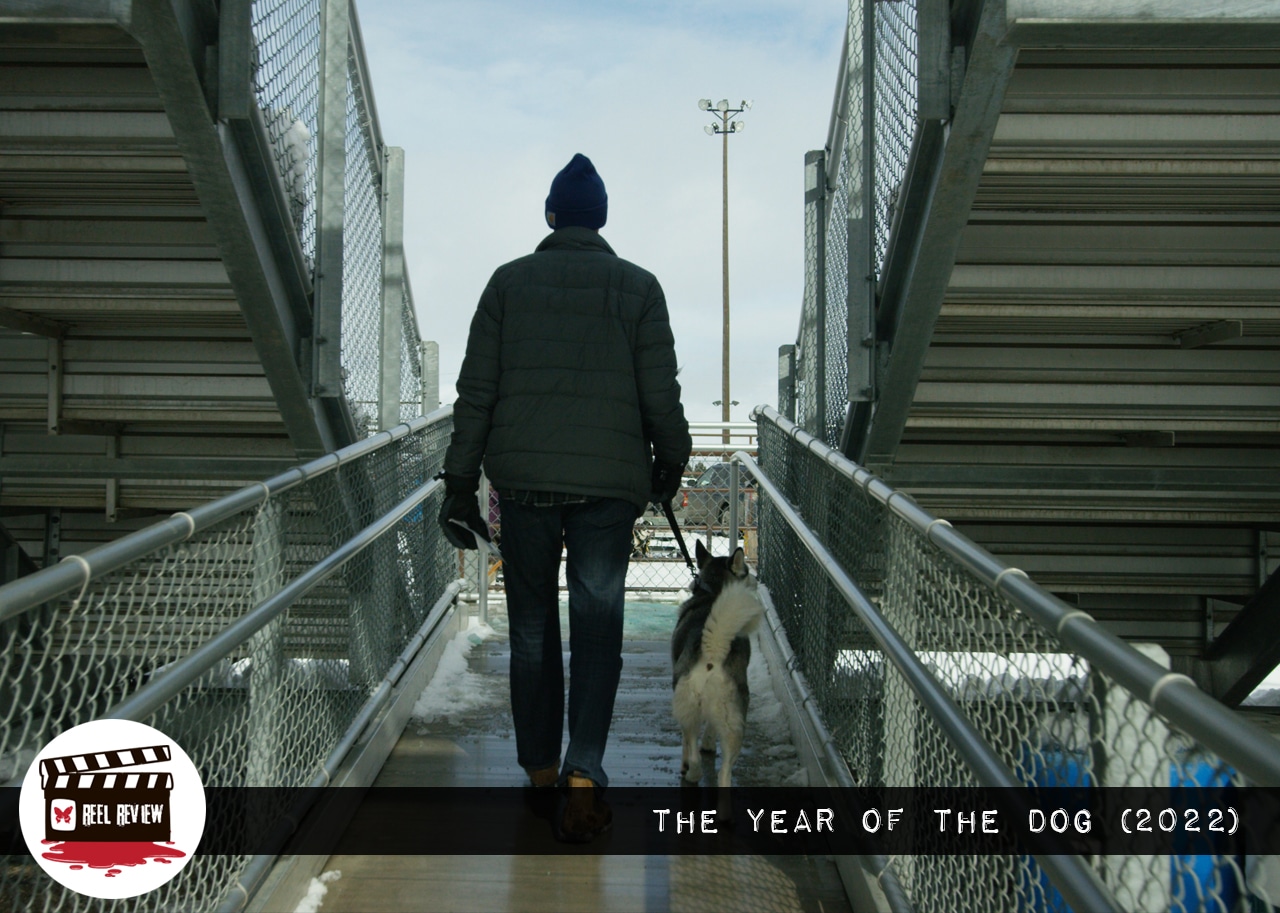

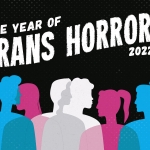
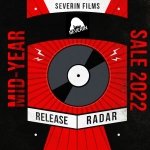
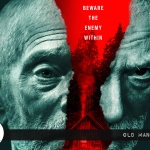







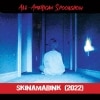
Follow Us!